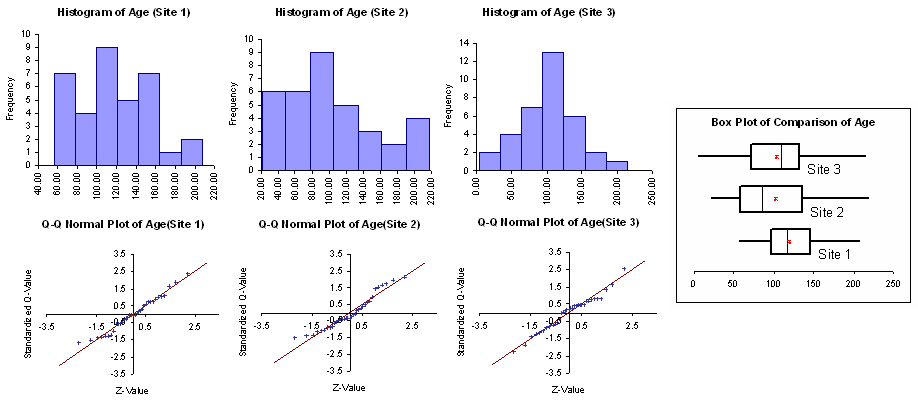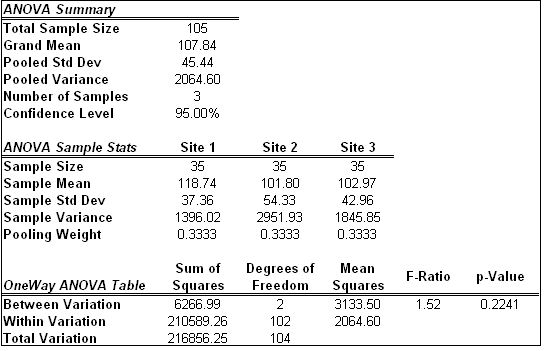Question
Suppose that you theorize that the average ages of White Oaks, Quercus alba, in the following three locations. Site 1 : Lower peninsula, MI, near
Suppose that you theorize that the average ages of White Oaks, Quercus alba, in the following three locations.
Site 1 : Lower peninsula, MI, near Lake Michigan
Site 2 : Upper peninsula, MI, near Lake Superior and
Site 3 : Lower peninsula, MI, near Saginaw Bay (are not all the same). To test this theory, you take 3 simple random samples of 35 trees from each site, and record the ages of each White Oak in each sample. (a) What are the hypotheses?
H0: ?1= ?2= ?3vs. Ha: At least two of the means differ from each other.
H0: ?1= ?2= ?3vs. Ha: At least two of the means are different from the third.
H0: ?1= ?2= ?3vs. Ha: At least one of the means is different from all the others.
H0: ?1= ?2= ?3; Ha: ?1? ?2? ?3
(b) Which of the following conditions satisfied must be satisfied for using an ANOVA to analyze this data set? Select all that apply.
Dependence
Independence
Equal standard deviations
Nonequal standard deviations
Xis normally distributed for each group
Xis normally distributed for at least one of the groups (c) What is the p-value of the ANOVA test? Use 4 decimal places. (d) If ? = 0.05, what is your conclusion?
There is insufficient evidence at the ? = 0.05 significance level to conclude that the mean age of White Oaks differs at between at least two sites.
The data provides sufficient evidence at the ? = 0.05 significance level to conclude that the mean age of White Oaks is the same for all three sites.
The data provides sufficient evidence at the ? = 0.05 significance level to conclude that the mean age of White Oaks differs between at least two sites.
(e) What does the p-value tell us?
The probability we would find sample means at least as far apart as we did, assuming the population means are all equal.
The probability the population means for all three groups are equal, assuming the sample means are as given above. The probability the population means are different for at least one group, assuming the sample means are as given above.
The probability we would find sample means at least as close together as they are, assuming the population means are all equal.
(f) Suppose the mean age of White Oaks in the Lower peninsula were 200, the mean age of all White Oaks in the Upper peninsula were 300, and the mean age of all White Oaks in the Lower peninsula were 200. Based on your conclusion in the previous problem, you have made
a Type I error.
a Type II error.
no error at all.


Step by Step Solution
There are 3 Steps involved in it
Step: 1

Get Instant Access to Expert-Tailored Solutions
See step-by-step solutions with expert insights and AI powered tools for academic success
Step: 2

Step: 3

Ace Your Homework with AI
Get the answers you need in no time with our AI-driven, step-by-step assistance
Get Started


